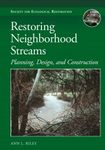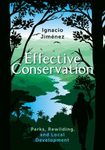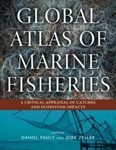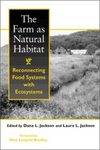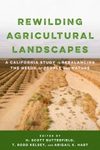About this book
The practice of ecological restoration, firmly grounded in the science of restoration ecology, provides governments, organizations, and landowners a means to halt degradation and restore function and resilience to ecosystems stressed by climate change and other pressures on the natural world. Foundational theory is a critical component of the underlying science, providing valuable insights into restoring ecological systems effectively and understanding why some efforts to restore systems can fail. In turn, on-the-ground restoration projects can help to guide and refine theory, advancing the field and providing new ideas and innovations for practical application.
This new edition of Foundations of Restoration Ecology provides the latest emerging theories and ideas in the science of restoration ecology. Fully one-third longer than the first edition and comprehensive in scope, it has been dramatically updated to reflect new research. Included are new sections devoted to concepts critical to all restoration projects as well as restoration of specific ecosystem processes, including hydrology, nutrient dynamics, and carbon. Also new to this edition are case studies that describe real-life restoration scenarios in North and South America, Europe, and Australia. They highlight supporting theory for restoration application and other details important for assessing the degree of success of restoration projects in a variety of contexts. Lists at the end of each chapter summarize new theory introduced in that chapter and its practical application.
Written by acclaimed researchers in the field, Foundations of Restoration Ecology provides practitioners as well as graduate and undergraduate students with a solid grounding in the newest advances in ecological science and theory.
Contents
Foreword \ Karen D. Holl
Preface
Book Guide
Acknowledgements
PART I. Introduction to Restoration and Foundational Concepts
Chapter 1. Ecological Theory and Restoration Ecology \ Margaret A. Palmer, Joy B. Zedler, and Donald A. Falk
Chapter 2. Ecological Dynamics and Ecological Restoration \ Katharine Suding, Erica Spotswood, Dylan Chapple, Erin Beller, and Katherine Gross
Chapter 3. Biodiversity as a Goal and Driver of Restoration \ Shahid Naeem
Chapter 4. Landscape Ecology and Restoration Processes \ Jean Paul Metzger and Pedro H. S. Brancalion
PART II. Ecological Theory and the Restoration of Populations and Communities
Chapter 5. Population and Ecological Genetics in Restoration Ecology \ Christopher M. Richards, Donald A. Falk, and Arlee Montalvo
Chapter 6. Ecophysiological Considerations for Restoration \ Sarah Kimball, Jennifer L. Funk, Darren R. Sandquist, and James R. Ehleringer
Chapter 7. Implications of Populations and Metapopulation Theory for Restoration Science and Practice \ Joyce Maschinski and Pedro F. Quintana-Ascencio
Chapter 8. Invasive Species and Restoration Challenges \ Carla M. D’Antonio, Elizabeth August-Schmidt, and Barbara Fernandez-Going
Chapter 9. Assembly Theory for Restoring Ecosystem Structure and Functioning: Timing is Everything? \ Vicky M. Temperton, Annett Baasch, Philipp von Gillhaussen, and Anita Kirmer
Chapter 10. Heterogenetiy Theory and Ecological Restoration \ Daniel J. Larkin, Gregory L. Bruland, and Joy B. Zedler
Chapter 11. Food Web Theory and Ecological Restoration \ M. Jake Vander Zanden, Julian D. Olden, Claudio Gratton, and Tyler D. Tunney
PART III. Ecosystem Processes and Restoration Ecology
Chapter 12. Nutrient Dynamics as Determinants and Outcomes of Restoration \ Sara G. Baer
Chapter 13. Recovery of Ecosystem Processes: Carbon and Energy Flows in Restored Wetlands, Grasslands and Forests \ Erika Marin-Spiotta and Rebecca Ostertag
Chapter 14. Watershed Processes as Drivers for Aquatic Ecosystem Restoration \ David Moreno-Mateos and Margaret A. Palmer
PART IV. The Spatial and Temporal Dimensions of Restoration
Chapter 15. Evolutionary Restoration Ecology \ Craig A. Stockwell, Michael T. Kinnison, Andrew P. Hendry, and Jill A. Hamilton
Chapter 16. Macroecology and the Theory of Island Biogeography: Abundant Utility for Applications in Restoration Ecology \ Andrew J. Dennhardt, Margaret E. K. Evans, Andrea Dechner, Lindsay E. F. Hunt, and Brian A. Maurer
Chapter 17. The Influence of Climate Variability and Change on the Science and Practice of Restoration Ecology \ Donald A. Falk and Constance I. Millar
PART V. Synthesis and Challenges
Chapter 18. Persistent and emerging themes in the linkage of theory to restoration practice \ Margaret A. Palmer
About the Editors
About the Contributors
Index
Customer Reviews
Biography
Margaret A. Palmer is a Distinguished University Professor at the University of Maryland, College Park, and Director of the National Socio-Environmental Synthesis Center.
Joy B. Zedler is the Aldo Leopold Professor of Restoration Ecology and Professor of Botany at the University of Wisconsin-Madison.
Donald A. Falk is Associate Professor at the University of Arizona School of Natural Resources and the Environment, with joint appointments at the Laboratory of Tree-Ring Research and the Institute of the Environments.















